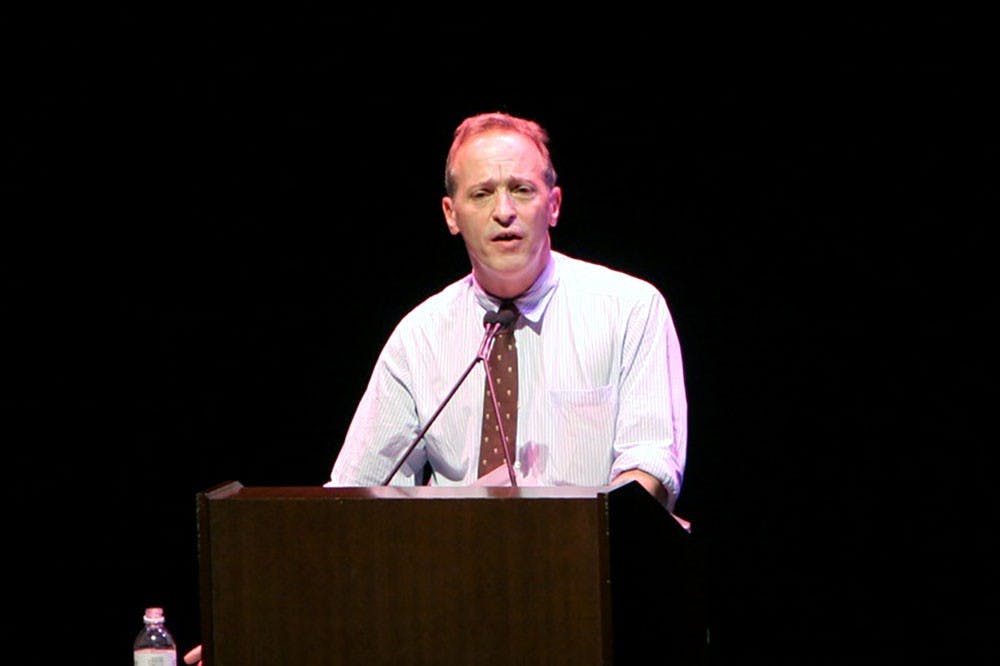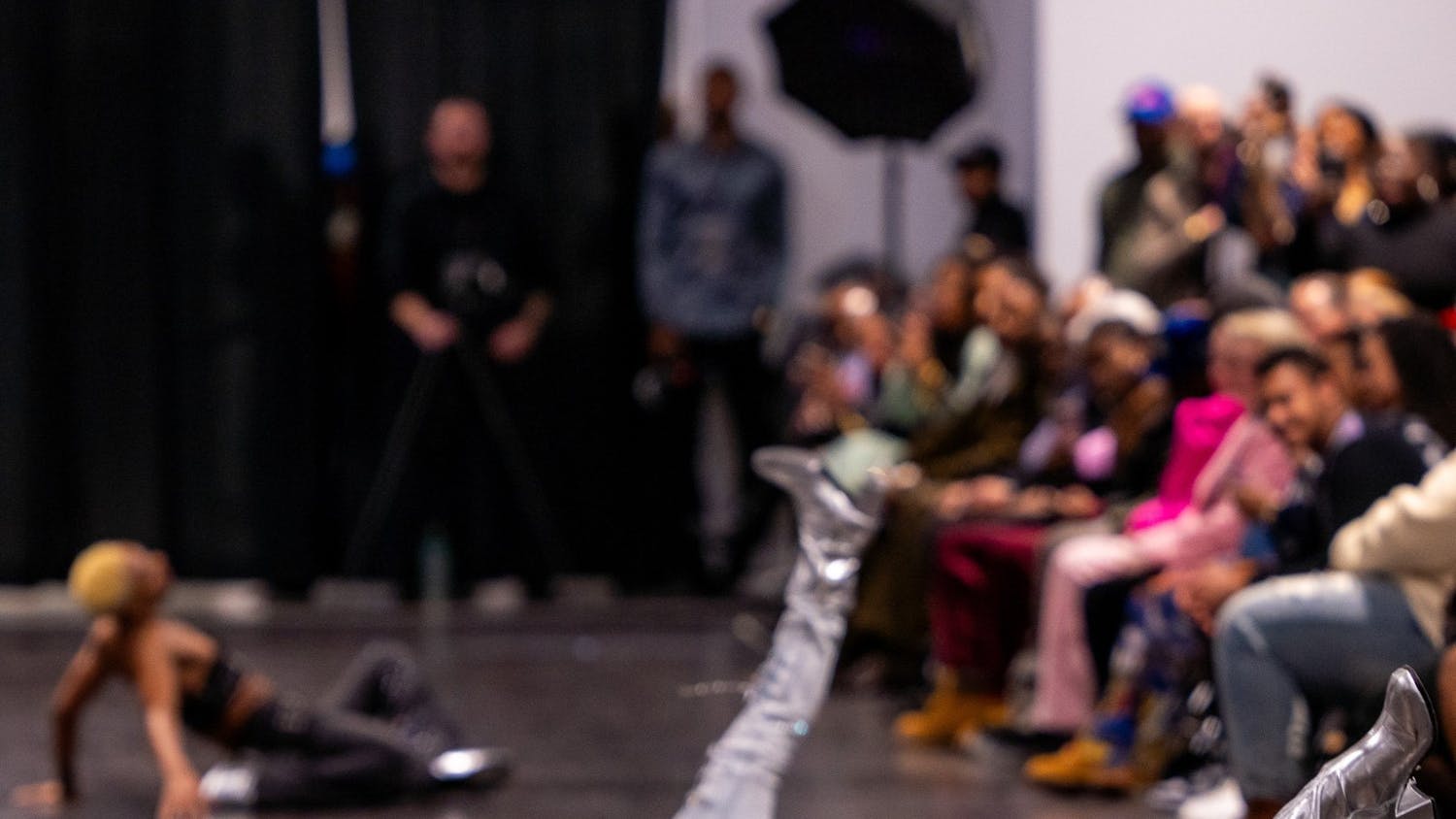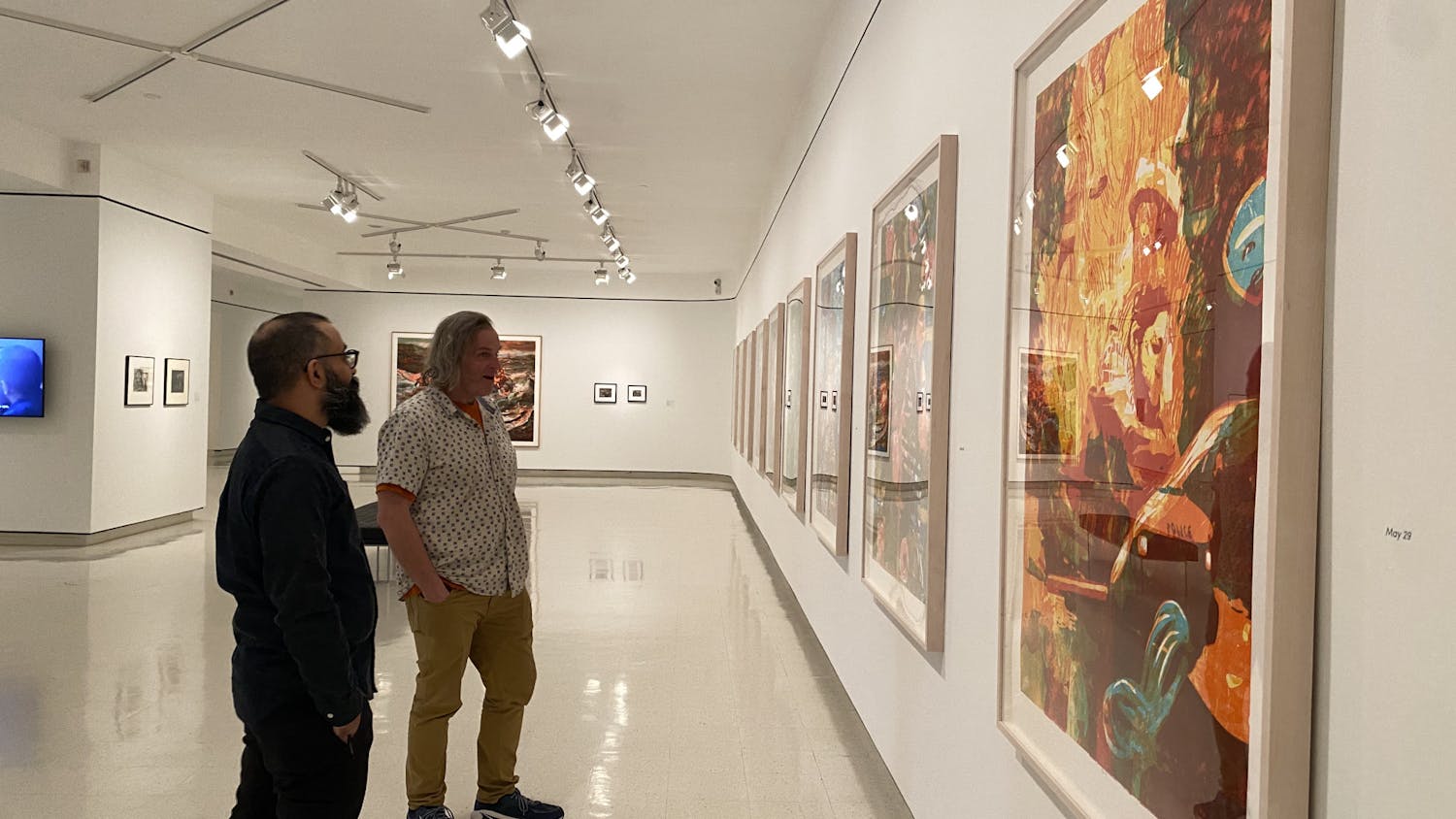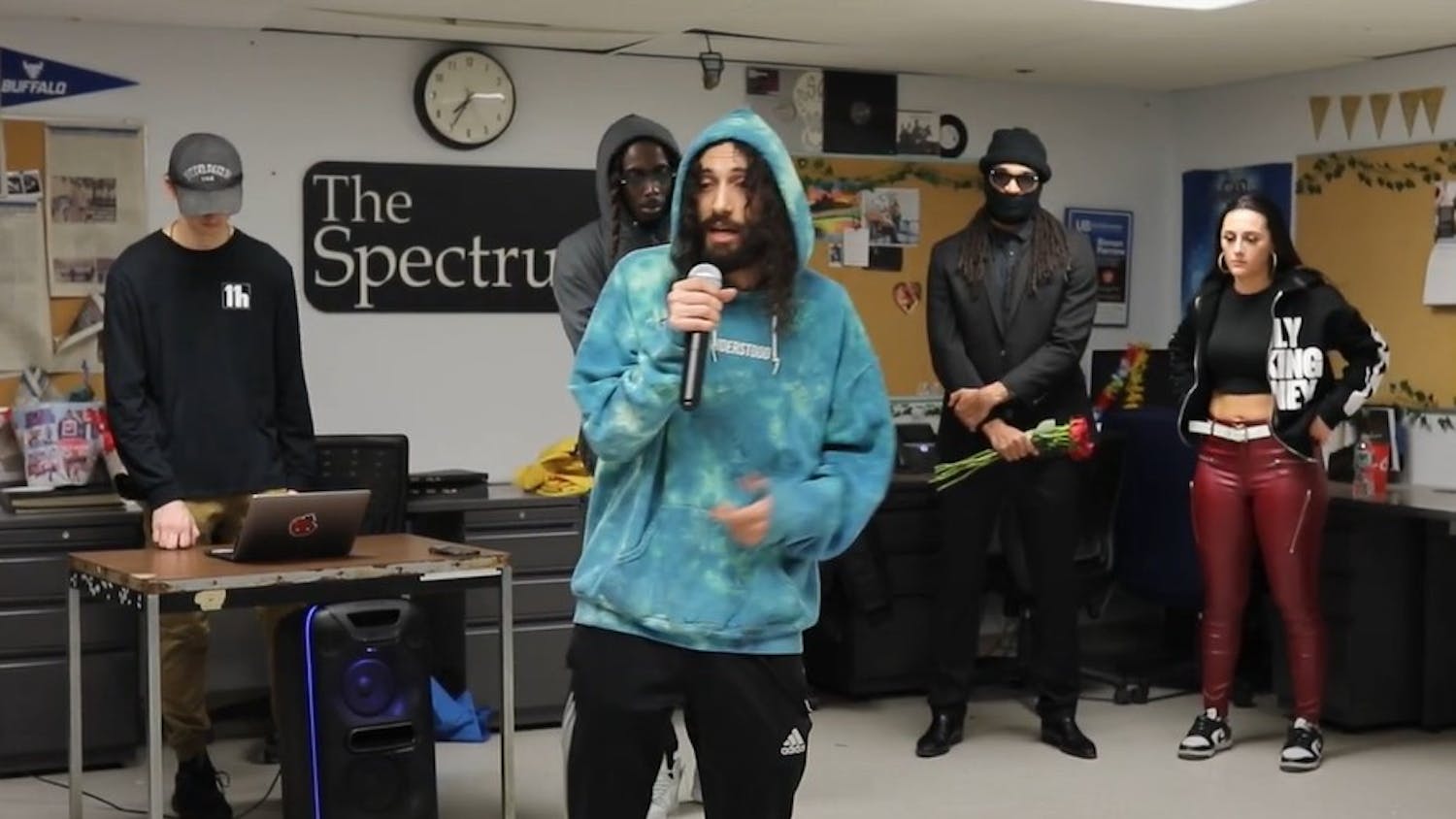David Sedaris started his routine with a dirty story about a strap-on dildo.
“I spend five to 10 hours a day picking up trash, I walk with my fitness app about 22 miles and pick up trash along the way,” he said, reading from his most recent story that ran in The New Yorker, “A Modest Proposal.” “This time around I came upon a strap-on dildo that was three inches long and had the diameter of a Vienna sausage and wondered, ‘Who would buy this?’”
An author, comedian, radio contributor and humorist, David Sedaris makes us see the humorous beauty in everyday life situations. First gaining notoriety in 1993 for his essay Santaland Diaries which was broadcasted on NPR, he has found a niche in an almost high-brow, gutter-minded humor. Saturday’s performance at UB was one of the stops in his 45-date tour across the country.
A man of short stature, he filled the Center for the Art’s Mainstage Theatre with excited readers and fans from across Western New York. He is currently on tour reading across the United States, even though he currently lives in the UK.
The day in which he discovered the strap-on was also the day he was waiting to hear the Supreme Court’s decision on whether to legalize gay marriage.
“To me it was a slightly mixed message, like saying ‘We’re all equally entitled to wear Dockers to the Olive Garden.’” Sedaris said.
Sedaris, now married to his partner Hugh, initially said he had no intention of getting married. After a number of proposals and deep rumination, Sedaris said they decided to marry, then realizing that, now an engaged couple, they both have the rest of their lives ahead of them.
Cheryl Maciolek, a Tonawanda resident, wasn’t sure how Sedaris would be live, but was excited to see his reading.
“I’ve read a couple of his books and friends have told me his readings are good,” said Cheryl Maciolek, a Tonawanda resident.
The particular story Sedaris started his routine with formed the foundation for the rest of the night as he blended topics ranging from politics, society and sexuality.
While his writing and stories are understood by many as quite relatable, they’re all personal, often incredibly so. And they always come with a gem of knowledge. He picks you up when you are down and, by the time the story is over, everything seems as mundane as when you started.
But the time in between feels like a roller coaster.
“He caters to his readers, he puts the audience first,” said Chris DeWayne, a Rochester native. “He takes everyday experiences we all face and makes funny stories out of them – he’s very honest. He’s not afraid to call out the normalcy of what we do and how stupid it can be.”
After reading from “A Modest Proposal,” Sedaris spoke on his inspirations. He talked about his beach house, humorously referred to as the “C-section.”
Many of his stories revolve around this beach house. It’s a place he said he enjoys because it’s a family house, but it’s technically his. Near this beach house is a canal, where people will go to feed turtles. Sedaris took an interest in a particular snapping turtle there, which has a tumor on his head resembling a “top hat.”
With that introduction, he leads into the reading of “Calypso.”
In it he speaks on experiences that he’s had while on tour, from meeting people to a few dark comparisons.
He said when traveling the states, the thing he loves is there is always something going on, as he begins to list various health scares Americans have preoccupied themselves with over the recent years. This time around, the scare in particular was Ebola.
“Schools closed. Hysterical parents were interviewed. ‘Ebola is here,’ we were told by the media, ‘and it’s coming to get you,’” said Sedaris. “I started seeing people wearing face masks in the airport and decided that I hated them. What bugged me, I realized, was their flagrant regard for their own lives. It seemed not just over-cautious, but downright conceited. I mean, why should they live?”
Then there’s the instance of a name he came across during a book signing, Draven.
“What kind of a name is ‘Draven?’” Sedarissaid.
He mused it must be the “past-past tense of drove.”
In addition to being spectator to Sedaris’ touring life, those listening to Sedaris’ reading were spectators to late night clinic surgeries and the fringe art he appreciates so dearly.
For his final reading, Sedaris read excerpts from his diary, which he says his stories come from, while mentioning his disdain for the dreaded dream journal.
The first excerpt, “August 26, 2015. Copenhagen, Denmark” tells a few of his favorite Danish words and their English meaning – for instance the fact that cancer also means power in translation. Cancer was also a theme in “Calypso.”
He invited audiences into his bewilderment over hearing that beastiality was just outlawed in conversation in Denmark.
“Was there just so much that had to be done by the government … before they outlawed beastiality?” said Sedaris.
The response he got was, “Beastiality was always ‘frowned’ upon before being outlawed.”
Another excerpt found him speaking to a Comcast employee after a reading, when she whispered the name of the company to him as if it was an unspeakable offense, and added the context that they’re the most hated company in the United States.
She then reveals how when working the call center, she is called n*gger more than a few times by people on the phone, but she’s white.
“Angry Americans love calling someone n*gger,” said Sedaris, pointing out the lack of context, or respect, certain people can have. “I found it funny she whispered ‘Comcast,’ but had no problem saying n*gger aloud.”
To close the night, Sedaris took questions from the audience, which ranged from “What makes you happiest?” to “What would you be doing if you weren’t writing?”
On what makes him happiest, Sedaris said “I’m happiest when I’m laying in bed with my sisters because of the kind of talks that occur – you’ll talk about anything and you’ll say anything.”
Sedaris also said, “I’m happiest before things happen, I try not to think of anything in advance, so I don’t build up the excitement.”
A man of small stature, Sedaris’ reach goes well beyond some words on paper or words spoken into a microphone, captivating the audience.
Sedaris’ performance brought back students who had already graduated but wanted to see him speak. Mike Brennan, a media study graduate, was one of those individuals who came back.
“I wasn’t that familiar with him, but after hearing him speak, I want to read his stuff. My girlfriend knows about him and wanted to see him,” said Brennan. “He’s captivating and very, very witty.”
His stories are life lessons draped in the nuances of the human experience. It’s not the groundbreaking mystery, the high-octane action or the never-ending drama, but the smaller things that we don’t always appreciate.
What would Sedaris be doing if he wasn’t writing?
With a laugh he responded, “Picking up trash.”
Kenneth Kashif Thomas is an arts editor and can be reached at arts@ubspectrum.com.





